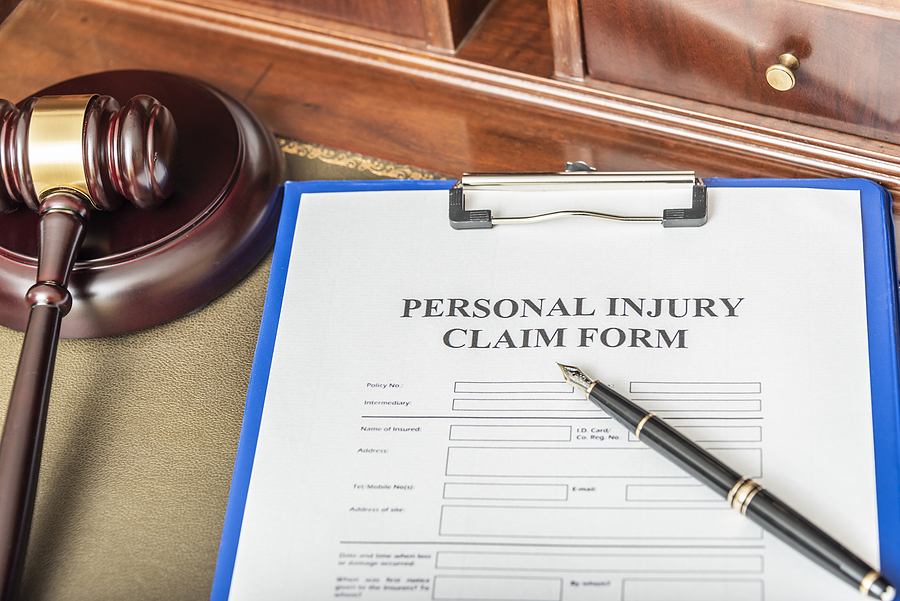Negligence – even a momentary act of carelessness – can result in severe injuries or tragic deaths. If you’ve suffered an injury or lost a loved one due to another’s negligence, The Eberst Law Firm may be able to help you obtain maximum compensation. Call 1-800-CALL-JON or use our online form for a free case review.

What is Negligence?
Negligence is the legal principle that holds individuals responsible for their actions or omissions when they fail to exercise the level of care that a reasonably prudent person would have exercised under similar circumstances. It involves breaching a duty of care owed to another person, resulting in injury, damage, or loss.
Different Types of Negligence
There are three different types of negligence, gross, contributory, and comparative negligence.
Gross Negligence
Gross negligence is a high degree of negligence that demonstrates a reckless or willful disregard for the safety of others. It involves conduct that goes beyond ordinary negligence. For example, someone may show a severe lack of care or conscious indifference to the consequences of their actions or omissions.
Gross negligence often involves a blatant violation of the standard of care that a reasonable person would exercise in similar circumstances. In legal terms, it’s a more egregious form of negligence and can result in heightened liability and potentially increased damages.
Contributory Negligence
Under contributory negligence, if the injured party is found to have contributed to their injuries in any way, even minimally, they may be barred from recovering any compensation from the other party. This means that if the injured party is found even slightly at fault for the accident or their injuries, they can’t recover damages from the defendant.
Contributory negligence is a relatively strict doctrine. These are the only jurisdictions that use it:
- Alabama
- Maryland
- North Carolina
- Virginia
- District of Columbia
Comparative Negligence
Comparative negligence is a legal principle used in determining the allocation of damages in personal injury cases. It is more widely followed than contributory negligence and provides a more equitable approach to assessing fault and assigning damages. Under comparative negligence, the degree of fault is allocated between the parties involved in the accident or incident. There are two main types of comparative negligence.
Pure Comparative Negligence
In pure comparative negligence, the injured party can recover damages even if they are primarily at fault for the accident. The injured party’s fault percentage reduces the compensation awarded. For example, if the injured party is 70% at fault, they may still recover 30% of the total damages.
Modified Comparative Negligence
Florida law follows this principle. In modified comparative negligence, there’s a threshold beyond which the injured party can’t recover damages if their fault exceeds a certain percentage. This threshold is typically set at 50% or 51%. If the injured party’s fault surpasses the threshold, they can’t recover damages. If their fault falls below the threshold, their compensation is reduced by their percentage of fault.
How is Negligence Proven?
Proving negligence involves establishing that the defendant breached their duty of care and that this breach directly caused the plaintiff’s injuries or damages. To successfully prove negligence, the plaintiff has to prove the following elements:
- Duty of care: The plaintiff must show that the defendant owed them a legal duty of care. The duty of care is a legal obligation to act reasonably and responsibly to prevent harm to others. The specific duty of care will depend on the circumstances and the relationship between the parties involved. For example, drivers must operate their vehicles safely. Property owners must maintain their premises in a reasonably safe condition for visitors.
- Breach of duty: Next, the plaintiff has to establish the defendant breached their duty of care. This involves demonstrating that the defendant failed to act in a manner that a reasonably prudent person would have in similar circumstances. The standard of care is typically based on what an average person would do to prevent foreseeable harm.
- Causation: Plaintiffs must then establish a causal connection between the defendant’s breach of duty and the plaintiff’s injuries or damages.
- Damages: Finally, the plaintiff has to provide evidence of actual damages or harm suffered due to the defendant’s actions. This can include physical injuries, pain and suffering, medical expenses, lost wages, property damage, or other measurable losses.
To prove negligence, the plaintiff and their legal team typically gather and present evidence, which may include:
- Eyewitness testimonies
- Photographs or videos of the accident scene
- Accident reports or police records
- Expert opinions and testimony
- Medical records and bills
- Maintenance or inspection records
- Any other relevant documents or evidence
How Negligence Plays a Part in Your Claim
The level of negligence exhibited by the defendant can impact the outcome of your claim, including the amount of compensation you may be entitled to. In some cases, if the defendant’s actions are deemed to be grossly negligent, meaning a severe or reckless disregard for the safety of others, it may increase the potential compensation awarded to the plaintiff.
Examples of Negligence in Personal Injury Lawsuits
Negligence in a personal injury lawsuit can vary drastically depending on the type of injury and the parties involved. For example, in a car accident, the negligent party is often another driver. In a truck accident, however, it could be a third party. In a slip and fall, the negligent party is usually not on-site at the time of the accident. Here are a few different examples of negligence in various personal injury cases.
Car Accidents
- Distracted driving: A driver who causes an accident while texting, talking on the phone, eating, or engaging in any other activity that diverts their attention from the road may be considered negligent.
- Speeding: A driver who exceeds the speed limit or drives too fast for the current road or weather conditions, leading to an accident, can be held liable.
- Drunk driving: Operating a vehicle under the influence of alcohol or drugs is illegal. It also constitutes negligence, as it endangers the safety of others on the road.
- Failure to obey traffic laws: Ignoring traffic signals, running red lights or stop signs, or failing to yield the right of way can result in accidents.
Truck Accidents
- Driver fatigue: Truck drivers who violate hours-of-service regulations and operate their vehicles while fatigued may be held liable for negligence if their exhaustion contributes to an accident.
- Improper loading or securing of cargo: Negligence can arise if a truck is overloaded, improperly loaded, or if cargo is not adequately secured, leading to a shifting load or cargo spillage, causing an accident.
- Inadequate vehicle maintenance: Neglecting routine maintenance or failing to address mechanical issues can contribute to accidents, and the owner may be considered at-fault.
- Violation of trucking regulations: Non-compliance with federal or state regulations, such as exceeding weight limits or not correctly maintaining logbooks, can be evidence of fault.
Slip and Falls
- Failure to address hazardous conditions: Property owners or managers may be negligent if they fail to address or warn visitors about dangerous conditions such as wet floors, uneven surfaces, broken stairs, or icy walkways.
- Inadequate lighting: Insufficient lighting in a public or private space can obscure hazards and contribute to slip and fall accidents, potentially resulting in liability on the part of the property owner.
- Failure to maintain proper maintenance: Negligence may arise if a property owner neglects to repair or maintain certain areas. Such as damaged flooring, loose handrails, or potholes, which can all lead to slip and fall incidents.
- Failure to remove clutter or obstacles: Property owners who allow clutter or obstacles to obstruct walkways or stairs, making them hazardous, may be negligent if someone is hurt as a result.
Contact The Eberst Law Firm to Speak with an Experienced Personal Injury Attorney
If you’ve suffered from a personal injury accident, speak with an experienced personal injury attorney with The Eberst Law Firm. We’ll provide expert legal guidance and representation to protect your rights and pursue the compensation you deserve. Contact us online or call 1-888-CALL-JON to schedule a consultation and discuss your case.
